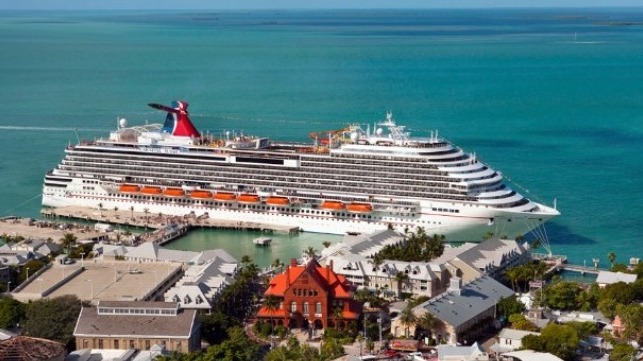Florida Senate Approves Bill to Overturn Key West Cruise Ship Ban

The Florida State Senate approved a bill that will overturn the referendums approved by Key West voters to restrict cruise ship access to the popular tourist destination. A similar version of the bill is pending a vote in the Florida House and then would go to Governor Ron DeSantis who it is believed, based on his support for the cruise ship industry, will sign the bill into law.
The bill has evolved dramatically since it began its way through the state legislature at the beginning of the current session earlier this year. The initial proposal called for the state to block all of Florida’s ports that are operated by local authorities from setting individual policies for their ports that could interfere with the state’s commerce, the flow of goods in and out of the state, and the public’s health, safety, and welfare. The bill would have applied to a total of 15 seaports in the state and would have prohibited local governments from restricting or regulating commerce, the size, and types of vessels, the source or type of cargo, or the number, origin, or nationality of passengers.
Faced with opposition in the legislature and objections from various port authorities and port related businesses, the legislators reached a compromise that limited the bill to block local regulations at the municipal-run ports in Pensacola, Panama City, Key West, and St. Petersburg. By narrowing the bill, the Florida Association of Counties withdrew its opposition as did republican lawmakers.
The final version of the bill has again been narrowed to restrict local government from making rules impacting the maritime trade specifically in or near “areas of critical state concern.” The definition includes areas of environmental and economic importance to the state. Reports from Florida say, however, that the only area that meets the current definitions is Key West. Other ports objected to the earlier versions saying they had rules that limited hazardous cargo to ensure the safety of residents or vessels that would be too large for the port facilities.
While lawmakers have again narrowed the scope of the legislation, one controversial element remains, which is the preemptive nature of the law. Many groups have been critical of Florida's structure of legislation, such as this port law, which overrides previously enacted rules in this case by the local authorities operating the ports.

that matters most
Get the latest maritime news delivered to your inbox daily.
Since the beginning, many have seen the legislation as a thinly veiled effort to overturn three referendums passed by Key West voters last November. They required restricting the number of people disembarking and the size of cruise ships docking in Key West as well as calling for priority to be given to the ships that had the best environmental records. While they passed with strong voter support, the rules faced many issues, including if they could be legally extended to the privately owned piers or if it only applied to the primary, publicly owned and operated downtown pier.
Key West residents have been strongly objecting to the state's efforts to overturn their votes. Key West’s fisherman testified in support of the ban and called on the lawmakers to reject the bill. They have now turned their attention to Governor DeSantis asking him to veto the bill that is expected to shortly arrive at his desk.
